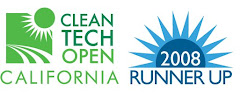The second auction of allowances for greenhouse gas emissions held by the Regional Greenhouse Gas Initiative (RGGI) was a robust auction that yielded $106.5 million for use by the 10 RGGI states, according to Potomac Economics, an independent market monitor. The auction was held on December 17, and while some feared that the economic situation would depress the prices for the emission allowances, in reality the prices went up, selling at a clearing price of $3.38 per allowance. That's about 10% higher than the clearing price of $3.07 per allowance that was reached in the first auction, which was held in late September 2008. RGGI (pronounced "Reggie") is the first market-based, mandatory cap-and-trade program for greenhouse gas emissions in the United States. Ten northeastern and mid-Atlantic states are participating in the program, including Connecticut, Delaware, Maine, Maryland, Massachusetts, New Hampshire, New Jersey, New York, Rhode Island, and Vermont. See the RGGI press release (PDF 146 KB) and Web site. Download Adobe Reader.
RGGI helps reduce the region's greenhouse gas emissions in two ways: first, the steady reduction of the emissions cap will eventually force electric generators to find ways to cut their emissions, primarily through energy efficiency or renewable energy. As the cap decreases, the rising cost of the allowances will effectively add an increasing carbon price to traditional fossil-energy combustion, improving the cost competitiveness of cleaner alternatives. But the auction also yields a new source of revenue for the participating states. Massachusetts, for instance, gained $14.8 million from the latest auction, the bulk of which was directed toward utility energy efficiency programs, heating system upgrades for the homes of families earning low incomes, and a new "green communities" effort. The funds are also supporting a new $5 million training program for energy auditors, insulation installers, and other energy efficiency technicians, creating skilled labor needed for the "green collar" opportunities that are generated by the concerted effort to reduce greenhouse gas emissions. See the press release from Massachusetts Governor Deval Patrick.
The RGGI states certainly seem to think the process works, as they have already embarked on a new effort to reduce the greenhouse gas emissions from vehicle fuels. Governor Patrick announced on January 5 that the 10 RGGI states are teaming up with Pennsylvania to create a regional Low Carbon Fuel Standard, which will be a market-based, technologically neutral policy to address the carbon content of fuels. The standard will require reductions in the average lifecycle greenhouse gas emissions per unit of useful energy, and it should promote a gradual shift to advanced biofuels and to cars powered with electricity. See the governor's press release.






No comments:
Post a Comment